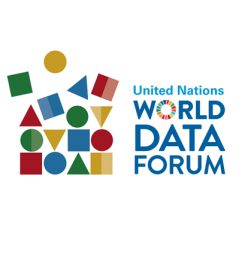Developing capacities for the 2030 Agenda: Moving towards implementation
23 Oct 2018 02:00h
Event report
In his introduction, Mr Johannes Jütting (Manager, Partnership in Statistics for Development in the 21st Century (PARIS21)) stressed that existing approaches to capacity development are sometimes not in line with demands. Further, survey results show that there is an increased demand for capacity development to include soft skills, such as leadership skills. He argued that it is high time to move from supply-led to demand-led capacity development approaches.
Mr Serge Kapto (Policy Specialists, Data for Development, UNDP) argued that statisticians need to learn ‘new languages’ in order to go beyond official and ‘traditional’ statistics. Doing so is important in order to achieve development goals, and the sustainable development goals (SDGs) in particular. At the same time, Kapto pointed out that it is crucial to involve the political side and the technical community as well as civil society. Crucially, statisticians need to learn to engage with other constituencies. A such, capacity development needs to take the roles of different actors at various stages of the data production and data analysis process into account.
In response, Jütting highlighted three elements that good capacity building needs to address: (a) people; (b) organisations; and (c) the institutional framework and external environment.
Speaking next, Ms Marina Gandolfo (Head of the International Affairs Division, Italian National Institute of Statistics (ISTAT)) explained the emerging new approaches towards capacity development on the basis of the Cape Town Action Plan for Sustainable Data. She also stressed that those working on developing statistical capacity need to develop a vision beyond the 2030 Agenda for Sustainable Development. Tools and guidelines for supporting national statistical capacity are crucial but need to remain flexible. The assessment of actual needs is important to help donors meet the real needs and priorities of countries.
In response, Jütting pointed out that there is a move towards a universal agenda in the case of capacity development. Since the adoption of the SDGs, the focus of capacity development has broadened to also include middle- and high-income countries. This, he argued, is testament to the fact that all countries need to adapt and learn when it comes to statistical capacities.
Ms Phetsamone Sone (Deputy-Head of the Lao Statistics Bureau (LSB), Ministry of Planning and Investment) looked at how her institution has responded and adapted to the Capacity Development 4.0 framework. She emphasised the use of SWOT analysis to better understand the supply and demand side of statistics. She also highlighted the LSB’s ‘country co-operation partnership framework’ and the increased focus on co-operation and coordination with others. Sone also pointed to the challenges encountered on the way, such as adapting institutional arrangements, prioritising among priorities, and strengthening communication.
Mr Yusuf Murangwa (Director-General, National Institute of Statistics of Rwanda (NISR)) stressed five key points that National Statistical Offices (NSOs) need to take into account:
- Trust. He argued that in order for individuals and organisations to use data, they need to trust the data. Trust, Murangwa argued, is built through communication and building connections.
- Involvement. Before data collection begins, the needs of data users need to be assessed and feedback on – for example, questionnaires – needs to be collected.
- Awareness. Those working for NSOs need to spend more time to engage various constituencies to create a broad awareness.
- Capacity building. Capacity development should enable people to actually access and use data and statistics in a meaningful way.
- Availability and access. When access to data is requested, the privacy of individuals needs to be ensured and problems associated with linking datasets, such as de-anonymisation, need to be addressed in dialogue with users.
Ms Gemma Van Halderen (Director of the Statistics Division, UN Economic and Social Commission for Asia and the Pacific (ESCAP)) shared the findings of the 2017 survey of the economic statistics capacity situation in the Asia and Pacific region. Based on this, she pointed out that over the last few years, countries have increased the number of statistical core items that they produce. Similarly, statistical law in these countries is in a process of reform to ensure transparency and independence of NSOs. Halderen also pointed out that many NSOs are understaffed and under-resourced and, therefore, reliant on development co-operation with international agencies. Yet, countries in the region are also keen on moving towards being providers of statistical capacity development.
Ms Martine Durand (Director of Statistics and Chief Statistician, OECD) stressed the important connection between trust and statistics. NSOs are essential to the data ecosystem, because they produce trusted statistics, by providing impartial and independent results that are rigorous and quality-driven. However, NSOs are also in the process of soul searching regarding their future role and focus. Duran argued that it will be key for NSOs to engage with the people, solicit user feedback, and entertain suggestions for using new data. NSOs should not be shy to experiment with new sources of data. A big task for NSOs in the future will be to improve statistical literacy and to target students, children, and school teachers in particular.
Mr Lawrence McGill (Vice-President, Knowledge Services, Foundation Center) focused his intervention on the role of civil society. He mentioned that there is a lack of common language for describing and defining civil society organisations and foundations. However, with the adoption of the SDGs, a common language begins to emerge. McGill went on to introduce three useful tools: the SDGFunders, the SDG Indicator Wizard, and the Global Philanthropy Data Charter.
Related topics
Related event

